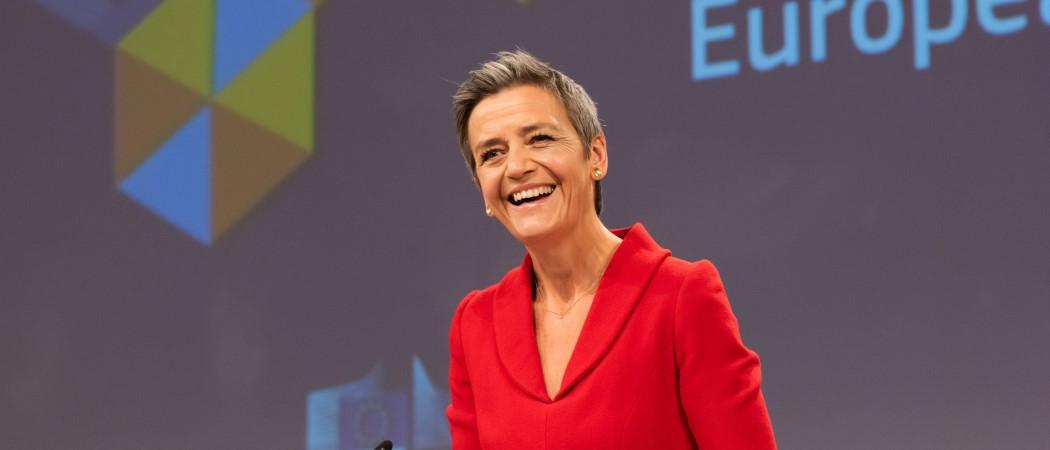MEPs and research organisations say more needs to be done to align the strategy with research and innovation funding programmes over the next seven years

Commission executive vice president Margrethe Vestager. Photo: European Commission
The EU is to launch new industrial alliances to develop microprocessors and semiconductor technologies, industrial data and cloud technology, space launchers, and zero emission aviation, the European Commission announced on Wednesday.
The announcement is part of an update to the EU’s industrial strategy that kicked off in March last year, aimed at increasing the bloc’s independence from technology products and services developed and manufactured in other parts of the world.
The EU’s first industry alliance was launched in 2017 to make the EU a world leader in the development and manufacturing of sustainable batteries for the car industry. Now the Commission wants to build on that to launch new alliances that promote technology sovereignty.
“We are developing similar initiatives in the areas of raw materials and clean hydrogen and we're preparing the launch of alliances on processors and semiconductor technologies, as well as industrial data, edge and cloud,” said Commission executive vice president Margrethe Vestager. “We are also considering the preparation of an alliance on space launchers and an alliance on zero emission aviation, to complement the renewable and low-carbon fuels alliance, which is also under consideration.”
In the updated industry strategy, the Commission also announced it will include R&D investments in its monitoring of industrial trends.
The European Association of Research and Technology Organisations (EARTO) said the new industrial alliances should build on public private partnerships in Horizon Europe, the seven-year programme for research and innovation.
According to the EARTO statement, the EU needs to better manage research and innovation investment plans in strategic technologies, coordinating Horizon Europe partnerships, industrial technology roadmaps in the revived European Research area and the synergies announced for the civil, defence and space industries.
Ahead of the launch on Wednesday, MEPs were growing frustrated that the Commission had already twice postponed the announcement of the industrial strategy update. The Commission says the process is still ongoing, and the current update does not replace the 2020 strategy, nor does it complete the policy process launched last year.
Conservative MEPs say more needs to be done to align the strategy with funding programmes for the next seven years. “Unfortunately, the strategy presented today leaves much to be desired,” said German MEP and Horizon Europe rapporteur Christian Ehler. “The 7-year EU budget programmes have started, but we still don't have clear plans upon which we can structure our spending.”
Green MEPs say the Commission should have included clearer investment targets for new technologies in building materials and clean energy to help the EU cut 55% of its carbon emissions by 2030. Michael Boss MEP, shadow rapporteur for the industrial strategy said the updated document, “must not leave innovation for emission-free building materials and clean energy to other parts of the world.”
Strategic autonomy
Ever since the Commission announced its ambitious climate targets, stakeholders had been wondering how the targets would be met in practice and asked what the industry needs to do to adapt.
MEPs have also raised concerns about the EU’s aim to become autonomous in strategic technologies and called for more pragmatic sector by sector plans. For example, some doubt that the EU can manufacture its own microprocessors and semiconductors, but EU trade commissioner says the industry and policymakers have what it takes. “We can organise ourselves to do it,” said Thierry Breton.
On the road to strategic autonomy, the EU has launched the first of a new generation of high-performance computers in Slovenia and has rolled out the battery alliance. “Step by step, we make open strategic autonomy a tangible thing,” said Vestager.





 A unique international forum for public research organisations and companies to connect their external engagement with strategic interests around their R&D system.
A unique international forum for public research organisations and companies to connect their external engagement with strategic interests around their R&D system.